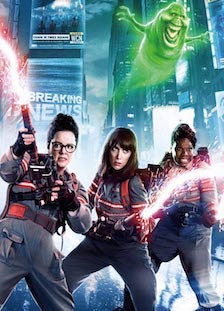Tuesday, February 15, 2022
By MICHAEL WALSH
For a time, it seemed that Black History Month had become neglected, perhaps even irrelevant. Then, in 2019, New York Times investigative reporter Nikole Hannah-Jones, a black feminist, launched something called The 1619 Project. Keyed to the 400th anniversary of the arrival of the first Africans in Virginia, it emphasized the centrality of slavery to American history.
The resulting push-back from white supremacists — including legislation to ban the teaching of the suddenly controversial “critical race theory” — only confirmed the truth of Hannah-Jones’s thesis. At the same time, we saw the term BIPOC (Black, Indigenous and People Of Colour), an acronym coined sometime in 2013, suddenly enter the language in a big way.
When the women’s rights movement finally recognized that its goals had much in common with Black Lives Matter, a powerful alliance resulted. It was the moment that the streams crossed. And, yes, the reference is to director Ivan Reitman’s comedy classic Ghostbusters in which the team ultimately defies Egon Spengler’s warning to “never cross the streams” of their proton energy weapons, the move that defeats god of destruction Gozer. Remade in 2016 with an all-female team, its diverse casting represented an assertive female-empowerment trend in the popular culture.
Racialists are feeling the earth shifting beneath their white, male feet. They are desperate to regain control of a narrative that served them so well for so long, and their panic is showing.
I see evidence of the streams crossing in my recent TV viewing, a selection of shows that often feature a BIPOC female at the centre of the action. It doesn’t get more diverse than the current CW series Batwoman. The title character, played by Javica Leslie, is a black lesbian supported by a team that includes white and Asian stepsisters (Rachel Skarsten and Nicole Kang), and a black male tech genius (Camrus Johnson).
Set in the real world is CBC-TV’s Diggstown, a Halifax-based urban drama. Black legal-aid attorney Marcie Diggs (Vinessa Antoine) has among her partners the indigenous Doug Paul (Brandon Oakes) and white Reggie Thompson (C. David Johnson). Their cases confront social issues such as systemic racism.
Then there is CBS’s current reboot of The Equalizer, in which the title character is now black and a single mom. Played by Queen Latifah, vigilante do-gooder Robin McCall is backed by Asian-American female Mel Bayani (Liza Lapira) and white male Harry Keshegian (Adam Goldberg). Even more confrontational is the CW’s 4400 reboot, a re-imagining of the science fiction series that uses its time-travelling premise and powerful female characters to confront a century’s worth of black history issues.
In January, the CW offered up Naomi, yet another comic book crossover. Kaci Walfall stars as the teenaged title character, a black foundling raised by a mixed-race couple. In the second episode, Naomi learns that she is an alien who arrived on Earth from a Krypton-adjacent world. Her quest will benefit from the help of another racially diverse collection of characters.
These shows' women can be real — Alex Irving (Deborah Mailman), the angry Aboriginal parliamentary candidate in the Australian political drama Total Control — or surreal — the teen besties (Jana Morrison, Samantha Aucoin) who open a portal to another dimension in CTV’s new high-school fantasy Astrid and Lily Save the World. What these women can’t be is ignored.
I can't help but hope that their crossing of the streams within the popular culture will be a game changer. That said, I’ll return to building my Reeling Back archive. February has seen eight additions to the archive so far, including:
THE LAST BUFFALO — Director Steven Low contrasts the art of William Lishman with the wonders of the natural world to create a work of cinema poetry in this 1990 IMAX 3D documentrary short. (February 12)
RHINESTONE — Dolly Parton and Sylvester Stallone unleash their star power in this 1984 tale of country music and urban cowboys, a comedy directed by Bob Clark. (February 7)
DOLORES CLAIBORNE — Jennifer Jason Leigh co-stars with Kathy Bates, playing her estranged daughter in director Taylor Hackford’s 1995 adaptation of a Stephen King novel. (February 5)
MRS. PARKER AND THE VICIOUS CIRCLE — Jennifer Jason Leigh has the title role in director Alan Rudolph’s 1994 look at the demon-driven life of Jazz Age culture critic Dorothy Parker. (February 5)
SINGLE WHITE FEMALE — Jennifer Jason Leigh stars opposite Bridget Fonda, playing her too-good-to-be-true roomate in director Barbet Schroeder’s 1992 psychological thriller. (February 5)
CROOKED HEARTS — Jennifer Jason Leigh made a working visit to Vancouver to join the acting ensemble director Michael Bortman gathered for this 1991 family drama. (February 5)
MIAMI BLUES — Jennifer Jason Leigh plays a slow-witted ex-hooker caught between a good cop and a psycho killer in director George Armitage’s 1990 adaptation of the Charles Willeford novel. (February 5)
LAST EXIT TO BROOKLYN — Jennifer Jason Leigh stars as Tralala, poster girl for post-war American despair in director Uli Edel’s 1990 adaptation of the incendiary Hubert Selby Jr. novel (February 5)
[108]
